On Borrowed Time

Brief Synopsis
Cast & Crew
Harold S. Bucquet
Lionel Barrymore
Sir Cedric Hardwicke
Beulah Bondi
Una Merkel
Bobs Watson
Film Details
Technical Specs

Synopsis
Death, personified in the form of Mr. Brink, hitches a ride with Dr. James Northrup and his wife, causing their tragic death in a car accident. This leaves their young son Pud in the care of his beloved grandfather, Julian Northrup, and his grandmother Nellie. Pud's maternal aunt, Demetria Riffle, a sanctimonious, greedy old maid, pretends to be fond of the boy, but really cares nothing for him and only wants his $50,000 inheritance. Gramps, who calls Demetria a "pismire," knows her true nature. Nellie too is aware of her niece Demetria's tendencies, but after Mr. Brink visits the ailing Nellie, Demetria plots to get Pud away from Gramps. When Mr. Brink visits Gramps, Gramps resists, luring him into his apple tree, and refusing to give him permission to leave. Mr. Brink is unable to come down from the tree, because only Gramps has the power to release him, the result of a wish he made after doing a good deed.
After the beloved family dog dies upon touching the tree, Gramps orders a fence built round the tree to protect others and Demetria tries to have Gramps's lawyer, Ben Pilbeam, and Dr. Evans declare him insane. Soon, however, Dr. Evans suspects that there is truth to Gramps's insistence that Death is trapped in his apple tree when several cases of certain death do not occur. Evans conducts experiments to disprove Gramps's story, but nothing dies, except a mouse that touches the apple tree. Evans begs Gramps to let Brink down, and appeals to his humanity. He tells him that a world without death will mean added suffering for those with incurable diseases, the old and infirm. Gramps wrestles with his conscience and thinks of his own old age and the burden that he will be to Pud, but cannot let Brink down.
The next day, Evans comes with papers to commit Gramps and turn Pud over to Demetria, thus convincing Gramps to let Brink out of the tree. After he gently tells Pud of his decision to go with Brink, Pud cries that he loves his Gramps so much that he wants to go with Mr. Brink, too. Heartbroken when Gramps tells him he can't come too, Pud runs off. Just before Gramps goes to the sanitarium, he pretends that Mr. Brink has said that Demetria and the sheriff are due to die soon. Marcia Giles, Gramps's loyal housekeeper, also pretends to hear Mr. Brinks's pronouncements, frightening Demetria and the sheriff into leaving. While Marcia and Gramps go looking for Pud, who has been hiding, Pud is goaded into climbing a fence built around a tree when Mr. Brink calls him a "baby calf." Pud does not touch the tree, but instead falls to the ground and is paralyzed. Realizing that Pud's terrible pain will only end with death, Gramps takes the boy in his arms and summons Mr. Brink from the tree. Now touched by Death, Gramps and Pud both feel wonderful and walk hand-in-hand beside Mr. Brink, joyful they will be together for eternity, reunited with Nellie.

Director

Harold S. Bucquet
Cast
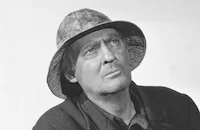
Lionel Barrymore

Sir Cedric Hardwicke

Beulah Bondi

Una Merkel
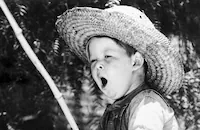
Bobs Watson
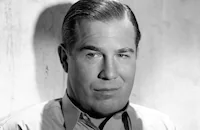
Nat Pendleton

Henry Travers
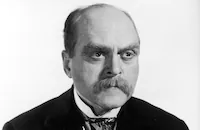
Grant Mitchell

Eily Malyon

James Burke
Charles Waldron

Ian Wolfe

Phillip Terry
Truman Bradley
Barbara Bedford

Hans Conried
Dutch Schlickenmayer
Ted Oliver
George Lloyd
Doris Rankin
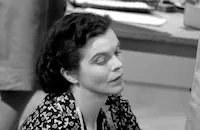
Dorothy Adams

Dickie Jones
Sonny Bupp
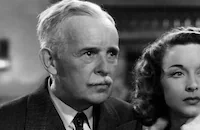
Howard Hickman
Crew
George Boemler
Jack Dawn
John S. Detlie
Sidney Franklin
Cedric Gibbons
Alice D. G. Miller
Frank O'neill
Joseph Ruttenberg
Douglas Shearer
Art Smith
Newell Sparks
Marvin Stuart
Dolly Tree
Franz Waxman
Claudine West
Edwin B. Willis

Videos
Movie Clip



Trailer
Film Details
Technical Specs

Articles
On Borrowed Time
Lionel Barrymore was one of MGM's biggest stars in the 1930s, despite being in his early 60s and confined to a wheelchair by inflammatory rheumatism in a hip that he had fractured. This left him in terrible pain, alleviated by the studio doctors by injections of cocaine and other drugs. Co-workers like director Frank Capra remembered that this did not affect Barrymore's acting. His body was a mess but not his verve. The wheelchair had made its first appearance in the Dr. Kildare series (also directed by Harold Bucquet) and Barrymore had to use it for the rest of his career. Kildare star Lew Ayres once said, "The wheelchair couldn't have mattered less. It enabled him to do what he wanted - paint and play the piano and play the raconteur. Between scenes, he would wheel to the center of things and hold court. The last scene of On Borrowed Time in which Gramps walks off to heaven with Pud was done using a moving backdrop that made it look as though Barrymore was walking when, in fact, he was merely standing."
Bobs Watson, like many child actors, found it difficult to work when he was being given direction by a parent and a director. "My dad was the one that really directed me, and I think some of the directors resented it a little bit. I remember one frustrating day on the set of On Borrowed Time: My dad wanted me to read the line in a specific manner. The director wanted me to do it a different way. I trusted my dad implicitly, so I read the dialogue the way he told me. After we had filmed it, the director said, 'Bobby, this time I want you to read the line this way.' I looked over at my dad and he shook his head no. During the few minutes when they touched up my makeup, my dad said, 'You do it the way I told you to do it.' So I went back in and I did it the way my dad told me, and the director said, very gently, 'No, Bobby I want you to do it this way.' I looked over at my dad and he shook his head. I did it again the way my dad told me to do it. Then the director got very impatient. 'No, I want you to do it this way.' So, finally, I did it the director's way and he said, 'Bobby, perfect!' I looked over at my dad and he shook his head and turned and walked away. That just broke my heart."
He found working with Lionel Barrymore much easier than his father. "After messing up his line, I ad-libbed my way out of it pretty well, but after it was over, I was almost ready to cry because I felt humiliated." Barrymore hugged Bobs. "'Okay, Bobby, don't feel bad, son. That's the first time you've missed in two weeks of shooting. Do you know that?'" Watson later said, Barrymore gave back. "The one thing about him and all the people I worked with that I consider great Rooney, Tracy, Edward G. Robinson, Loretta Young, Fonda was their eye contact. As they looked at you, they became the characters they were portraying. The actor was my grandfather."
Released on July 7, 1939, On Borrowed Time received mostly positive notices from critics though some bemoaned the loss of the spicier dialogue of the play. Philip T. Hartung, in The Commonweal noted that, "Even though [producer] Sidney Franklin's production is not guilty of too many Hollywoodian changes, it misses the emotional impact of the stage version. However, On Borrowed Time is still recommended fare for those who can take a genuinely charming fantasy in modern dress. Its best scenes, those in which Sir Cedric Hardwicke as Mr. Brink (of Eternity) comes with gentle persuasiveness to make his final calls, are done with amazing sincerity and reality."
Variety called it a prestige picture for both Metro and the industry, with a chance to get more than passing reception in general bookings. "Despite treading close to dangerous ground with its basic premise, On Borrowed Time holds a wealth of humanness and homey dramatic atmosphere in its unfolding to command attention. On Borrowed Time follows the stage play closely and retains the richness of human and spiritual qualities of the original. It's a definite departure from accepted lines of cinematic entertainment, given all advantages of finest production and neatly guided in the direction by Harry Bucquet."
Time reserved its praise for Bobs Watson, "Though 61 year-old Lionel Barrymore makes expert use of his wheelchair, a prop as dear to a character actor as sword & cloak to a romantic hero, in scene-stealing honors, 8 year-old Bobs Watson comes off best. Youngest son of an old time actor who has four other children in the movies, Cinemactor Watson has appeared in 29 pictures, now earns about $800 a week. He got the role of Pud after its Broadway incumbent, 8 year-old Peter Holden, was judged too mature for the part. Swamped by autograph seekers at the preview of On Borrowed Time, he grandly observed: "At times like these I sometimes wish I wasn't in pictures. But really I like them and don't feel that way when I realize how much happiness they bring to everyone."
Producer: Sidney Franklin
Director: Harold S. Bucquet
Screenplay: Alice D.G. Miller, Frank O'Neill, Claudine West; Paul Osborn (play); Lawrence Edward Watkin (novel)
Cinematography: Joseph Ruttenberg
Art Direction: Cedric Gibbons
Music: Franz Waxman
Film Editing: George Boemler
Cast: Lionel Barrymore (Julian Northrup, Gramps), Sir Cedric Hardwicke (Mr. Brink), Beulah Bondi (Nellie Northrup, Granny), Una Merkel (Marcia Giles), Bobs Watson (John 'Pud' Northrup), Nat Pendleton (Mr. Grimes), Henry Travers (Dr. James Evans), Grant Mitchell (Ben Pilbeam), Eily Malyon (Demetria Riffle), James Burke (Sheriff Burlingame), Charles Waldron (Reverend Murdock), Ian Wolfe (Charles Wentworth), Phillip Terry (Bill Lowry), Truman Bradley (James Northrup).
BW-99m. Closed captioning.
by Lorraine LoBianco
SOURCES:
Time , July 17, 1939
The Commonweal film review by Philip Hartung, July 14, 1939
Variety June 30, 1939
The Barrymores by Carol Stein Hoffman and Leonard Maltin
Twinkle, Twinkle, Little Star: And Dont Have Sex or Take the Car by Dick Moore

On Borrowed Time
Quotes
Trivia
Notes
In an onscreen foreword, the producers of the film acknowledge that this story bears some resemblance to one in Geoffrey Chaucer's The Canterbury Tales. The tale to which they were referring is most likely "The Pardoner's Tale." Although an October 1938 Motion Picture Daily news item noted that producer Lucien Hubbard was given a production assignment on this film, his participation in the film has not been confirmed. The picture marked Sidney Franklin's film debut as a producer. Hollywood Reporter pre-production news items note that Harold Bucquet replaced H. C. Potter as the director just prior to the start of production, and that Lionel Barrymore, who was suffering from a disabling illness, was to have been replaced by Frank Morgan. Barrymore was reinstated in the role after he convinced studio heads that he could play the part despite his illness. According to a biography of Barrymore, although studio publicity material announced that he would walk again in the film, he was only able to stand for the final scene, while a moving backdrop made it appear as if he were walking. Actor Sonny Bupp took over the role originally assigned to Bobs Watson, who was reassigned to the role of Pud. Hollywood Reporter news items also indicate that some filming took place at Agoura Ranch in Agoura, CA, and that the final scenes were filmed in Bakersfield, CA, where desert flowers that were necessary to the story were located. A Celanese Theatre teleplay of On Borrowed Time, starring Ralph Morgan and Billy Chapin, was televised on the ABC network on June 25, 1952, and a Hallmark Hall of Fame production of the play, produced and directed by George Schaefer and starring Ed Wynn and Dennis Kohler, was televised on the NBC network on November 17, 1957.















